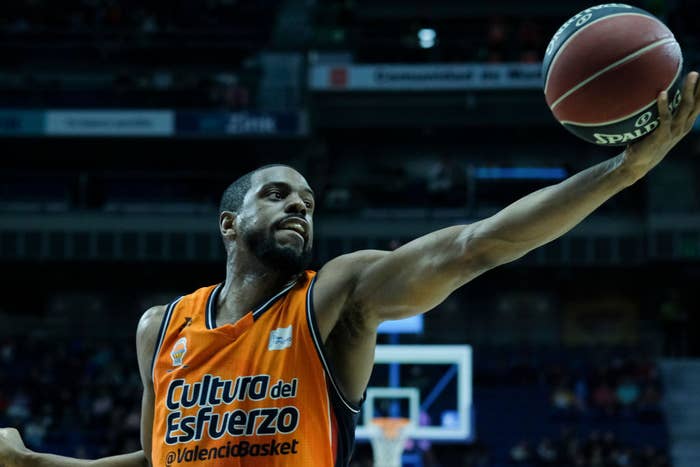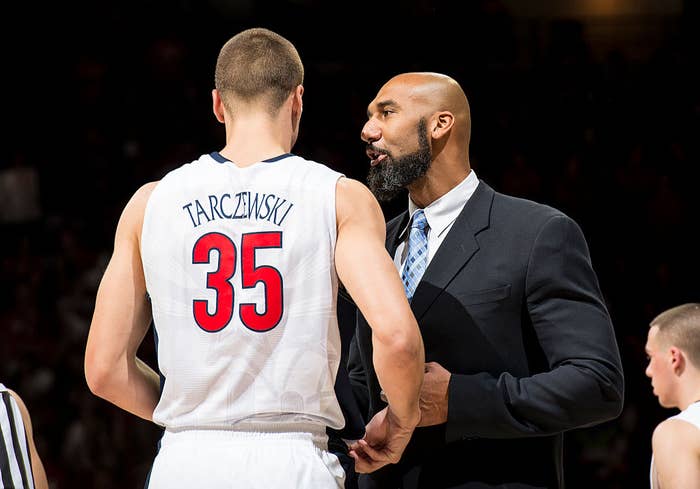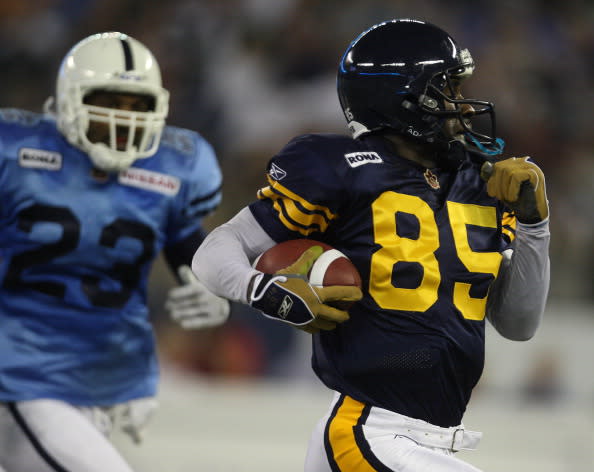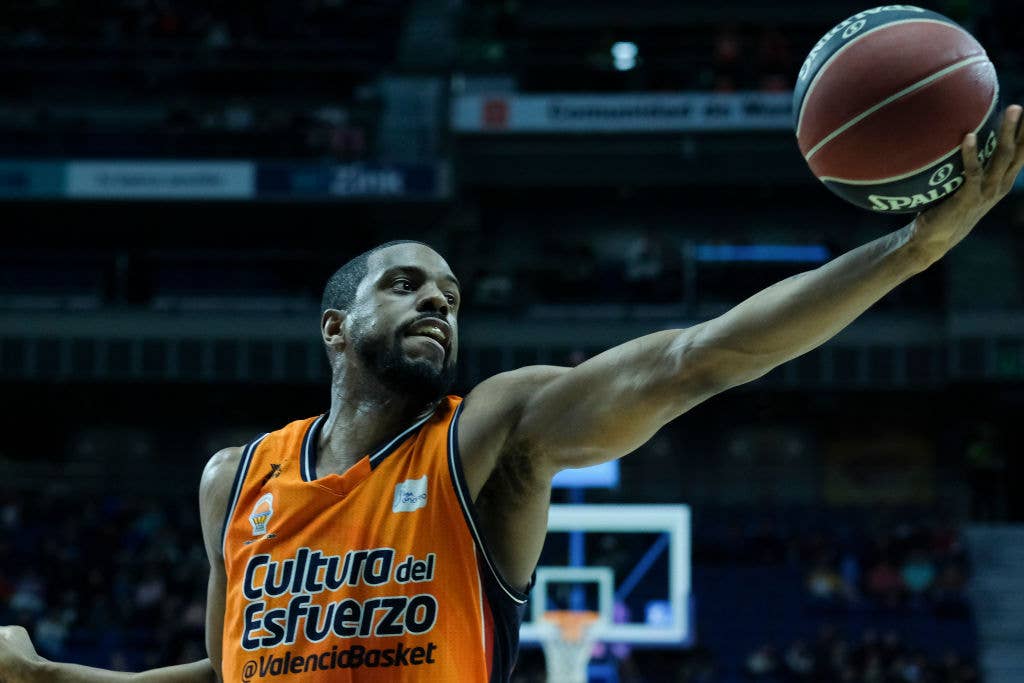
The day Kip Gross left for Japan, he had had it with American baseball.
The journeyman pitcher had spent the last four seasons bouncing between Triple-A and the big show with the Reds and Dodgers. Every call-up came with the hopes of a permanent stay in the majors—only to be crushed by the sobering reality of a return to the minors.
Amid the never-ending cycle of promotions and demotions, Gross eventually had an opportunity to join Japan’s Nippon Ham Fighters—which he accepted in 1994. The day he left, he was informed by his Triple-A manager, longtime catcher Rick Dempsey, that he had received another call-up at the request of legendary skipper Tommy Lasorda.
“Tommy just called,” Gross recalls Dempsey saying. “He wants you back in the big leagues.”
But at 30, Gross was done with the minor league life, and not getting what he felt was appropriate big-league consideration. It was time for a change.
“Tell Tommy to go fuck himself,” Gross recalled saying to Dempsey.
And that was it. Gross was off to Japan, where he would find more than just stability—he found stardom. He led the league in wins in 1995 and 1996, and became one of the league’s best American-born players.
Gone were the days of living in hotels—which Gross had to live in because he never knew where he would be playing. He was now a full-blown star in a country even more baseball crazy, perhaps, than the United States. And there wasn’t a damn thing Tommy Lasorda could do to squash it.
Gross is one of many American athletes who found success in leagues outside of the United States. Foreign leagues are filled with American players who for some reason or another, decided to play overseas. And plenty of them go on to become stars there—particularly when they can’t cut it in the States. Jimmer Fredette, for example, averaged 37.6 points per game in China last year after an unsuccessful NBA career.
Rationales for going abroad vary, but the choice is often fiscal. It can offer many borderline athletes a chance to extend their playing careers before needing to get a 9-5 job. Or, it can provide a second chance at getting back to the big stage.
For former Arizona Wildcat Joseph Blair, the decision to go overseas was purely about dollars and cents—he was drafted 35th overall by the Sonics, but the team refused to give him a guaranteed contract. He responded by taking his talents to France, where his money would be guaranteed.
“I think everyone’s dream is to be in the NBA, so if you take that into account the answer is I would rather go the NBA,” Blair said. “But in reality, what I wanted to do is get paid to play basketball. And that’s what I did.”

Blair would become one of the EuroLeague’s most decorated players over the next 13 seasons. He was named second-team All-EuroLeague in 2002, was the league MVP in 2003, in addition to several solid seasons played in France, Italy, Turkey, and Russia.
Point guard Erick Green, a former Virginia Tech standout who currently plays for Valencia Basket in Spain, hopes to use the EuroLeague to spark another chance at an NBA career.
Green couldn’t quite cut it in short stints with the Nuggets and Jazz, but has since established himself as one of Europe’s better players. He was MVP of the Spanish SuperCup this year, where he helped Valencia win the tournament.
“I think playing in EuroLeague, they say that’s the best way to get back to the NBA,” Green said. “And that's my all-time goal is to go back and play in the NBA..”
Playing somewhere where your first language is foreign often provides a bit of a communication roadblock. Green said most EuroLeague coaches speak English, but not as a first language.
“We have a translator because if our coach really wants to say something, he speaks Spanish to get his point across,” Green said. “So we have a translator who helps us Americans out, because when he starts speaking fast we don’t really understand too much.”
The language barrier, however, can also rid a player of outside distractions. While Gross was a star in Japan, he didn’t always experience the pressure of being one, because he didn’t get consumed by the attention and publicity around him.
“I never read papers. I never had my interpreters read the papers for me and I never had the interpreters listen to the news and tell me what they were saying. I didn’t care,” Gross said. “So I figured if you don’t know, it’s never gonna hurt you.”
“I think outside of America, people are more sensitive to the plight of the black American. Because of segregation, racism everything. As much as we avoid speaking about it in American history, in the concept of world history, they talk about it in America as a very prevalent subject.” — JOSEPH BLAIR
In addition to a new language, embracing a new culture can be difficult for someone who has never left the U.S. Blair had qualms about embracing European cultures at first, but now believes doing so was one of the best things to ever happen to him.
“For me, it was difficult at first, but once you embrace it, it was a life-changing experience,” Blair said. “For me, I wouldn’t be the man I am today if I didn’t embrace other cultures. I have a global perspective on life as a whole because of my basketball experience, so what I was scared to do ended up being one of the biggest blessings of my life.”
Blair said this global perspective has helped him as a coach—he’s currently an assistant in with the G-League’s Rio Grande Valley Vipers, the Rockets’ affiliate.
While international players often do attain fame, foreign leagues are hardly as lucrative as American ones. For example, Japan’s highest-paid baseball players this season made just $4.46 million, and the highest-paid EuroLeague player is currently making about $4 million. Salaries are even lower in the CFL, where the team salary cap was just $5.15 million this season.
Blair, for example, was a star in Italy’s second-most popular sport. But he wasn’t rich—at least not compared to what American athletes make.
“Even when I was in Milan, and had commercials running on TV, and was great friends with Giorgio Armani, I was still taking the subway every time I needed to get somewhere,” Blair said. “So I think it’s very different when people consider star status in Europe, for an American basketball player at least, comparably to what you had in the NBA.”
Milt Stegall, the CFL’s all-time leader in touchdowns, spent 14 seasons in Canada, and was an All-Star in nine of them. Despite that, he’s thankful for the three seasons he spent in the NFL with the Bengals, because he is now able to receive NFL benefits.
“I was fortunate enough that I got all my years in where I could get all the benefits, all the 401k, the pension, and the medical,” Stegall said.
Stegall also said that if money were no object, you might see more borderline American athletes playing in foreign leagues.

“Nobody dreams of playing in the CFL,” Stegall said. “But if you ask any American whose played in the CFL and played in the NFL, they’d tell you all the time they love the CFL, but the fact that they get more in the NFL is the main reason they play. If they could get the same amount of money in the CFL, they’d do it.”
Travel is also far less exquisite in foreign leagues. Private jets, posh hotels, and preferential treatment are mostly exclusive to American sports.
“In the NBA, you got the private flights, and you’re in and out. Over here, it’s not the same,” Green said. “[Sometimes] we get on the charter flights, but a lot of times we’re on commercial flights.”
The hotels in the EuroLeague are also fairly run-of-the-mill, per Green.
“You stay in okay hotels, nothing like the NBA,” Green said. “In the NBA, you have your own room. Here, you share a room. So it’s different.”
Being an American in a foreign league also garners a variety of treatment from locals that is unique to an athlete’s American identity. Sometimes this can be a good thing—Blair said that as an African-American, he felt he was more accepted in many European countries.
“I think outside of America, people are more sensitive to the plight of the black American,” Blair said. “Because of segregation, racism everything. As much as we avoid speaking about it in American history, in the concept of world history, they talk about it in America as a very prevalent subject.”
In countries like Japan, however, treatment can be worse. Japanese players and coaches have often made no secret of their desire to preserve records held by native-born Japanese players. Perhaps most infamously, three foreign-born players (two Americans, one Venezuelan) had approached Sadaharu Oh’s single-season home run record over the last three decades. All three faced a litany of intentional walks when coming close to breaking the record, before it was finally broken in 2013.
In one of these instances, a pitching coach openly admitted to ordering the walks, saying he didn’t want Oh’s record to be broken by a foreign player.
Gross suspects that some similar bias could have been at play in his third season there—from his own teammates. He had led the league in wins two years in a row, and a third such season would have been a record.
It was when he moved closer to the record that strange things began to occur.
“After I was getting closer with like a month left in the season, things just didn’t happen behind me the way they normally did,” Gross said. “I can’t say it was intentional, all I know was it was very, very weird to see what I saw behind me. When in all the other four years, it didn’t happen.”
Foreign settings also expose athletes to fan bases that can get rowdy, to say the least. Especially in Europe.
Anyone who follows European soccer knows how crazy—even violent—things can get over there. Basketball is the same way.
“A lot of guys think ‘I’m gonna come up here and dominate. This is the CFL. I played in the NFL.’ It happens to a lot of guys, then they get up there and it’s an eye-opener, and they don’t end up sticking around.” — Milt STEGALL
This past season’s Greek league championship between Olympiakos and Panathinaikos had to be delayed late in the game after Olympiakos fans started throwing flares onto the court.
“They basically lit the arena almost on fire, like all over the floor, and we had to evacuate and get off the court and leave,” said Green, who was playing for Olympiacos at the time. “The other team had to evacuate the court. It was something I’d never seen before, it was unreal.”
As a former ACC star, Green is no stranger to playing in hostile environments. But he had never experienced anything like this.
“When I saw the fire, the flames going by the side of your head, it was unbelievable,” Green said. “So it was definitely scary, I wanted to get out of there, get to a safe place. And they finally calmed things down after 25 minutes.”
A common thread between most athletes playing overseas is that many Americans players don’t take foreign leagues seriously. Many think that because they’re not in the NBA, NFL, or MLB they’ll be able to succeed without really trying. They quickly learn pro sports are still pro sports.
“People need to realize that this is not a second-class league,” Stegall said of the CFL. “A lot of guys think ‘I’m gonna come up here and dominate. This is the CFL. I played in the NFL.’ It happens to a lot of guys, then they get up there and it’s an eye-opener, and they don’t end up sticking around.”
As for the borderline athlete considering between a career on an NBA, NFL, or MLB bench or stardom overseas, it’s something Stegall thinks is worth considering—especially if you want to actually play your natural position. This applies for basketball players looking for minutes and baseball players looking for more than a pinch-hitting role.
“If something happens where they release you and they feel you’re not good enough, and you have an opportunity to play in CFL, it’s definitely a route to go to,” Stegall said. “It gives you an op to play your position you played in college and high school, because you have a lot of guys that never get a chance to play their specific position.”

